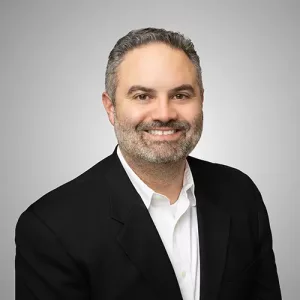Healthcare in the United States is facing yet another inflection point that has been exacerbated by the ongoing global pandemic. Cost of care is at an all-time high, and while there has been significant discussion and government intervention, there has been limited improvement in cost containment. The entirety of the healthcare workforce is exhausted.
The drivers of this inflection point include, and are not limited to:
- National health spending as a percentage of GDP is nearing 18 percent and increasing,
- The population is increasing and aging, creating more demand for healthcare services,
- There is increased prevalence of people living with one or more chronic conditions,
- Therapeutic and pharmaceuticals to manage disease are costly with increased pressure on the 340B program,
- Insurance cost shift from employer-sponsored benefit to consumer-selected high deductible health plans,
- Increased operating and maintenance costs associated with aging hospital physical plants,
- Costs associated with implementing and maintaining a unified electronic health record (EHR),
- High competition for a limited supply of highly qualified medical professionals,
- Supply chain issues continue to drive costs up and are starting to hinder care delivery, and
- Competition for labor is prevalent at all levels with record numbers of people leaving healthcare to retire or pursue careers in other fields.
All of these factors call into question the long-term sustainability of our current healthcare delivery system. There has never been a better time for hospital leaders to pause, survey the landscape, discuss available options and focus on leadership.
The list above isn’t exhaustive and probably isn’t going to get smaller. To move forward, we need to focus on leadership.
- Start with your why. As a healthcare leader, knowing exactly why you chose to pursue the profession is extremely important. It is the foundation that allows you to set and communicate the organizational vision. It informs decision-making related to organizational strategy. Given the moment in time that we find ourselves, teams are seeking something common that engages our brain emotionally. More than any other industry, healthcare workers tell stories. Stories allow leaders to align our teams around a common vision of how care will be delivered in our community.
- Step back and evaluate yourself. One of the most important leadership characteristics is our emotional intelligence. Daily stress and high leverage decisions require leaders to take time and prioritize personal development. Understanding how you as a leader receive and respond to information allows leaders to invest and develop others. The degree to which leaders are self-aware to how they respond emotionally to the daily situations sets the stage for how our teams will respond.
- Develop your team. Now, more than ever is the time to be developing additional leaders. The strength of our organization is only as secure as the team that is being actively recruited and developed.
- Be open to conversations about succession planning and talent development.
- Create conversations to understand where people are at in their career and goals.
- Invest in leadership; there is a difference between technical skill and leadership ability.
- Allow time for education and discussion regarding skills required for leadership and how it is different than technical skills to facilitate smoother transitions from care provider to healthcare leader.
- Evaluate your organization and market. To be successful, we need to critically think about our organization within the context of the market in which we compete. A common way to do this is through completion of a SWOT (strengths, weaknesses, opportunities and threats) assessment. The best organizations use an outside facilitator to probe and ask follow-up questions to fully understand each element. Asking community stakeholders their opinions builds trust and a sense of open-mindedness to advance the organization forward. We must know why people choose to leave the market for healthcare and sometimes be more creative in strategy development. Are we effectively communicating competitive advantage to employers and the community? Find ways to maximize market opportunities and mitigate market threats.
- Advance forward. We will never have perfect information. Effective leadership is a commitment to moving the organization forward based on the best information available. That means that in certain situations we may need to do nothing and in others we may need to be exceedingly creative. Regardless, we move forward!




